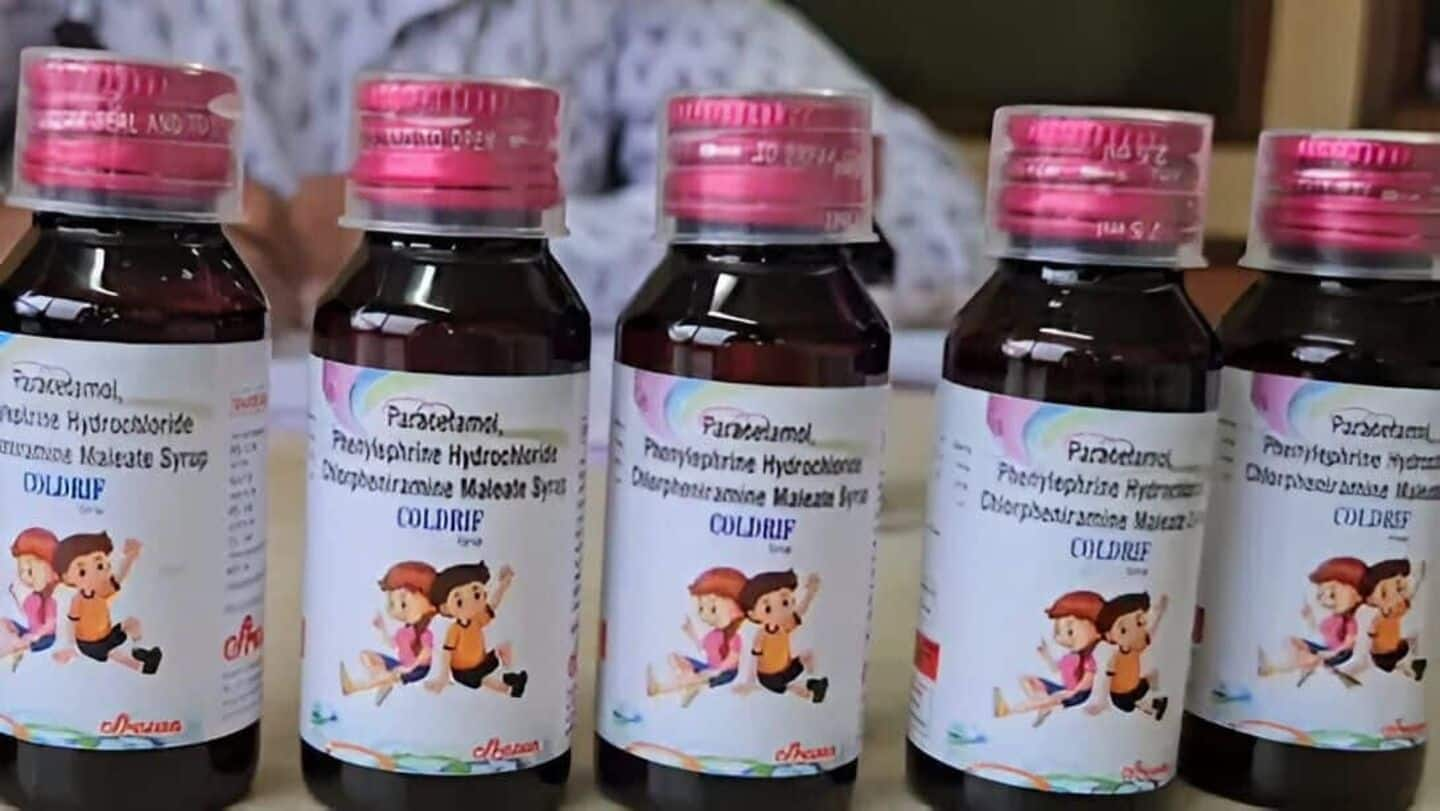
Coldrif cough syrup deaths: Sresan Pharma's license canceled
What's the story
The Tamil Nadu Drugs Control Department has canceled the manufacturing license of Sresan Pharmaceutical Company. The move comes after the company's Coldrif cough syrup was linked to multiple deaths in Madhya Pradesh due to toxic contaminants found in the product. The state health department confirmed that Sresan Pharma has been officially shut down following investigations into these incidents.
Legal proceedings
Owner of Sresan Pharmaceuticals arrested
Ranganathan, the owner of Sresan Pharmaceuticals, was arrested on October 9 in Chennai by a Special Investigation Team (SIT) from Madhya Pradesh. A Parasia court has since remanded him to 10-day police custody for further investigation. The SIT is probing the link between Sresan's products and the deaths in Madhya Pradesh.
Regulatory actions
Two drug inspectors suspended
In light of the incident, two senior drug inspectors have been suspended for dereliction of duty. The Tamil Nadu government has also ordered extensive inspections of other pharmaceutical manufacturing units across the state. This comes as part of efforts to ensure compliance with safety and quality standards in the industry.
Political criticism
BJP leader Annamalai criticizes Tamil Nadu government
Bharatiya Janata Party (BJP) leader K Annamalai has slammed the Tamil Nadu government for its handling of the case. He alleged that only two drug inspectors were suspended after SIT intervention, accusing the state government of creating an "illusion" and evading responsibility. Annamalai also highlighted Sresan Pharma's history of quality violations and lack of inspections by Tamil Nadu drug inspectors.
Regulatory mandate
DCGI mandates testing for all medicines manufactured in India
The Drugs Controller General of India (DCGI) has now mandated that every medicine manufactured in India must undergo mandatory testing before approval. This decision was taken after the Coldrif incident came to light. The DCGI has also directed all States and Union Territories to ensure compliance with the Drugs and Cosmetics Rules, 1945, specifically regarding testing raw materials and finished pharmaceutical formulations.